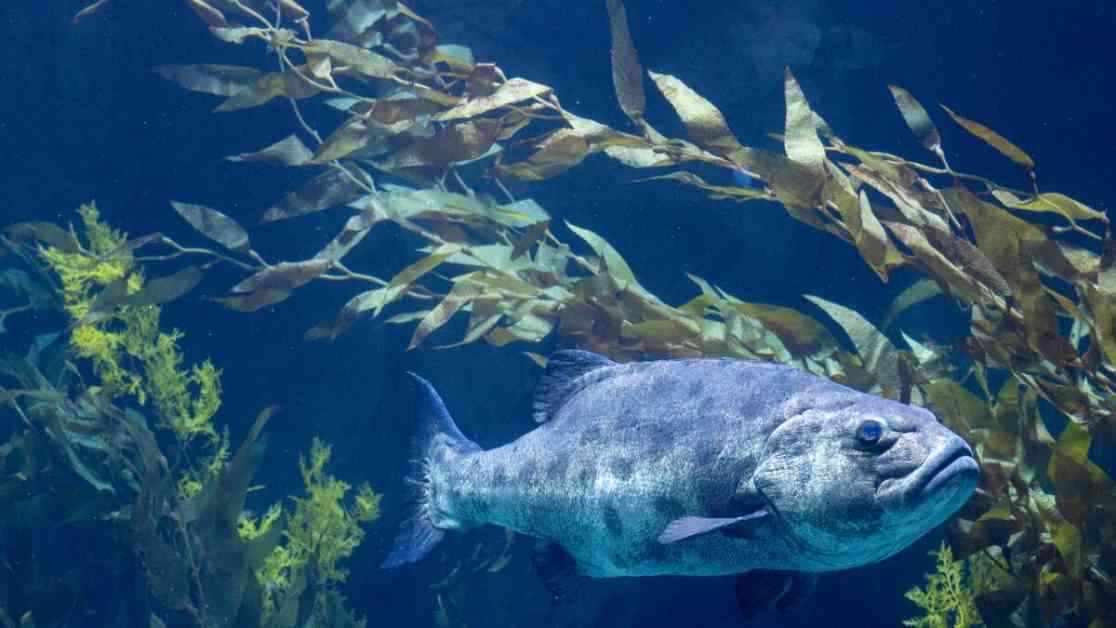A group of scientific divers embarked on a mission off Malibu’s Big Rock Beach, seeking to uncover the underwater impacts of the Palisades fire that ravaged the area just a month prior. As they slipped beneath the surface, their goal was clear: to assess the damage to the vital kelp forests that serve as the cornerstone of the coastal ecosystem.
Kelp Ark, a nonprofit seed bank based in San Pedro, took on the task of preserving genetic material from West Coast kelp species. The dive on February 10 marked their second expedition following the aftermath of the fire and subsequent rains that introduced tons of ash and debris into the ocean. The team was determined to shed light on the repercussions of wildfires on the delicate balance of marine life.
Lori Berberian, a PhD student at UCLA specializing in geography, emphasized the significant implications of wildfires on coastal ecosystems. While wildfires are commonly associated with land destruction, the impact on the ocean ecosystem is profound. Forests of kelp, a crucial component of marine biodiversity, offer food and shelter to hundreds of species and play a key role in absorbing greenhouse gases that contribute to climate change.
Kelp, however, is highly susceptible to environmental changes, with fluctuations in temperature, light availability, nutrients, and pollutants directly affecting its populations. Recent decades have seen fluctuations in kelp along the California coast, with the Palisades and Eaton fires in January delivering a devastating blow to the area’s ecology. The fires burned over 40,000 acres, destroyed thousands of buildings, and unleashed ash, debris, and toxic residue into the ocean, posing unprecedented challenges to marine life.
Erin Hestir, a remote sensing specialist and UC Merced professor leading the KelpFire research project, highlighted the need to monitor the effects of wildfire runoff on kelp populations. Every rainfall already introduces contaminants into the ocean, but the aftermath of a wildfire exacerbates the issue. The sediment and pollutants introduced by fires disrupt kelp’s access to essential resources like rocks and sunlight, hindering their survival.
The team’s research revealed alarming trends in post-fire kelp recovery, with giant kelp beds near Malibu showing a mere 7% recovery rate in the aftermath of the Woolsey fire. In contrast, Palos Verdes witnessed a 61% recovery, indicating the varying impacts of wildfires on different regions. The composition of pollutants from urban structures burnt in the fires presents a new challenge, as toxic substances like hydrocarbons and metals could prove detrimental to kelp and other marine life.
As California’s giant kelp faces an array of threats, the cumulative impact of environmental stressors raises concerns about a potential tipping point. The fragile balance of kelp ecosystems, already strained by climate-related challenges, risks irreversible damage with each new disturbance. Hestir expressed apprehension about the long-term effects of wildfires on kelp, fearing that these events could push the ecosystem past the point of recovery.
The divers of Kelp Ark encountered the grim reality of post-fire ocean conditions during their collection expeditions, where murky waters and polluted sediments clouded their vision. The once vibrant kelp forests had been replaced by decaying remnants, signaling a loss of habitat and biodiversity in the wake of the fires. The team’s efforts to collect samples for analysis and spore harvesting underscored the urgency of monitoring and preserving kelp populations in the face of escalating environmental threats.
As the fate of California’s kelp forests hangs in the balance, researchers, divers, and environmentalists alike are faced with the critical task of safeguarding these vital ecosystems from the cascading effects of wildfires and other environmental disturbances. The resilience of kelp, a barometer for the health of coastal ecosystems, serves as a poignant reminder of the interconnectedness of land and sea, urging us to take action before it’s too late.


